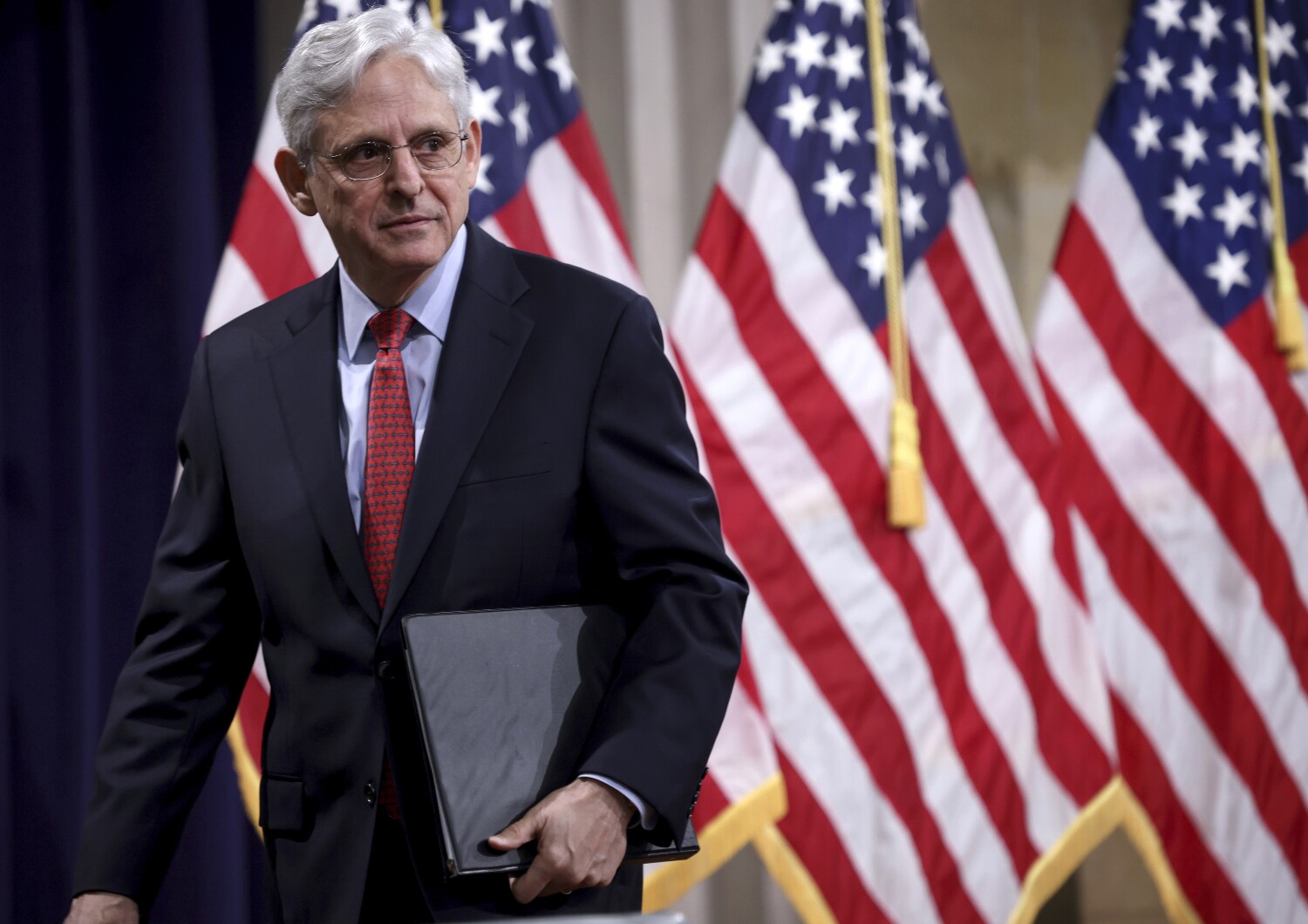[ad_1]
When President Trump left Washington last January after losing his noisy battle to overturn the 2020 election, it was tempting to heave a sigh of relief and rejoice that the guardrails of democracy had held.
But there was a more sobering lesson in our near-miss with a coup d’état: Those supposed barriers were more fragile than we knew. They’re really just a vulnerable fabric of laws, rules and norms.
And during his four years in the White House, Trump appeared bent on shredding all of them.
He demanded that the Justice Department and FBI investigate his opponents and go easy on his friends. He pardoned two convicted ex-advisors suspected of concealing evidence on his behalf.
He secretly blocked the delivery of military aid to Ukraine so he could strong-arm the Kyiv government into producing dirt on Joe Biden.
When whistleblowers filed complaints, he tried to get them fired. When his aides faced congressional subpoenas, he ordered them not to comply.
When Congress refused to appropriate money for a border wall, he declared a national emergency and spent the money anyway.
The only penalty Trump suffered was the indignity of being impeached twice. He’s still his party’s presumptive leader and a viable candidate for a second presidential term.
The lesson for other politicians who share Trump’s authoritarian bent? Norms are for wimps.
One of Biden’s campaign promises, as the apostle of normalcy, was to restore traditional political norms. Biden has said all the right things and — unlike Trump — has restored the tradition of releasing his tax returns.
But all those other norms still need shoring up — and Biden hasn’t offered much in the way of new laws or regulations to deter a future president from asserting extralegal powers.
In a book-length report they wrote before the election, two eminent legal scholars — former White House Counsel Bob Bauer, a Democrat, and former Assistant Atty. Gen. Jack Goldsmith, a Republican — provided the next president with a long list of potential reforms.
They’re disappointed by how little action has occurred, not only in the closely divided Congress but within Biden’s executive branch.
“There’s a list of things that aren’t really advancing,” Goldsmith, who served in the administration of President George W. Bush, told me last week. “These are all really important issues that have to be taken care of.”
In Congress, the Democratic-run House passed a sprawling bill in December that included almost every measure a reformer in either party could want. The Protecting Our Democracy Act, written by Rep. Adam B. Schiff (D-Burbank), would protect whistleblowers and inspectors general against retaliation, strengthen Congress’ power to enforce subpoenas, prohibit future presidents from promising anyone a pardon in exchange for political favors, and rein in presidents’ ability to invoke emergency powers at will.
But the bill isn’t going anywhere in the Senate, partly because Schiff and his colleagues were explicit about it being written with Trump in mind. Republican senators — and the bill would need at least 10 of their votes to overcome a filibuster — will hesitate to touch a measure that’s so clearly a swipe at their party’s favorite ex-president.
Luckily, some of the bill’s provisions have won support from Republicans in the past, and those measures may resurface in other forms.
Sen. Rob Portman of Ohio, for example, wants to strengthen the independence of inspectors general. Sen. Mike Lee of Utah hopes to restrict a president’s ability to invoke emergency powers. Others have supported strengthening Congress’ powers to enforce subpoenas, perhaps because they can imagine a future when their party will hold a majority.
Those measures “are not at the core of the norms Trump violated — the conflict-of-interest stuff, the disclosure of tax reforms, the pardon abuse — but they are still important,” Goldsmith said.
Paradoxically, it’s not clear whether all those provisions will get backing from the Biden White House.
“Any executive branch is going to be wary about tying its hands in a way that a lot of these reforms do,” Goldsmith noted. The prospect of Republican-led congressional committees issuing subpoenas if the GOP wins this year’s midterm elections may give administration officials pause.
Meanwhile, there are still reforms the Biden administration can undertake on its own.
Last year, Bauer and Goldsmith wrote a letter urging Atty. Gen. Merrick Garland to strengthen the Justice Department’s internal rules, beginning with “a clear written statement of the Department’s commitment to non-partisan law enforcement.” Garland says he’s committed to the department’s independence but hasn’t bolstered its regulations, they said.
“Some of these measures would be non-controversial,” Bauer, who was an advisor to Biden’s 2020 presidential campaign, told me. “It’s something that really should happen this year. … Garland himself represents, in his person, his background and his approach to the department, a major change. That’s important, but it’s not enough to stand the test of time. He’s not going to be attorney general for the next 30 years.”
Why hasn’t Garland done more? Goldsmith and Bauer said they don’t know, beyond the fact that the attorney general’s first-year agenda has been hectic. Other lawyers who know Garland say he’s deliberative and cautious — sometimes to a fault. He waited a year before announcing he intended to hold accountable those responsible for the Jan. 6 invasion of the Capitol, a delay that drew complaints from progressives.
More steps to bolster the independence of the Justice Department are long overdue — and so are the rest of those proposals for reform.
When Biden came to office, he wanted his legacy to be a wave of legislation to rival Franklin D. Roosevelt’s New Deal. That plan ran aground in the 50-50 Senate.
But the way is still open to keep an equally important promise: repairing the guardrails of democracy. Biden has a chance to leave the Constitution stronger than when he arrived — and that would be a legacy too.


